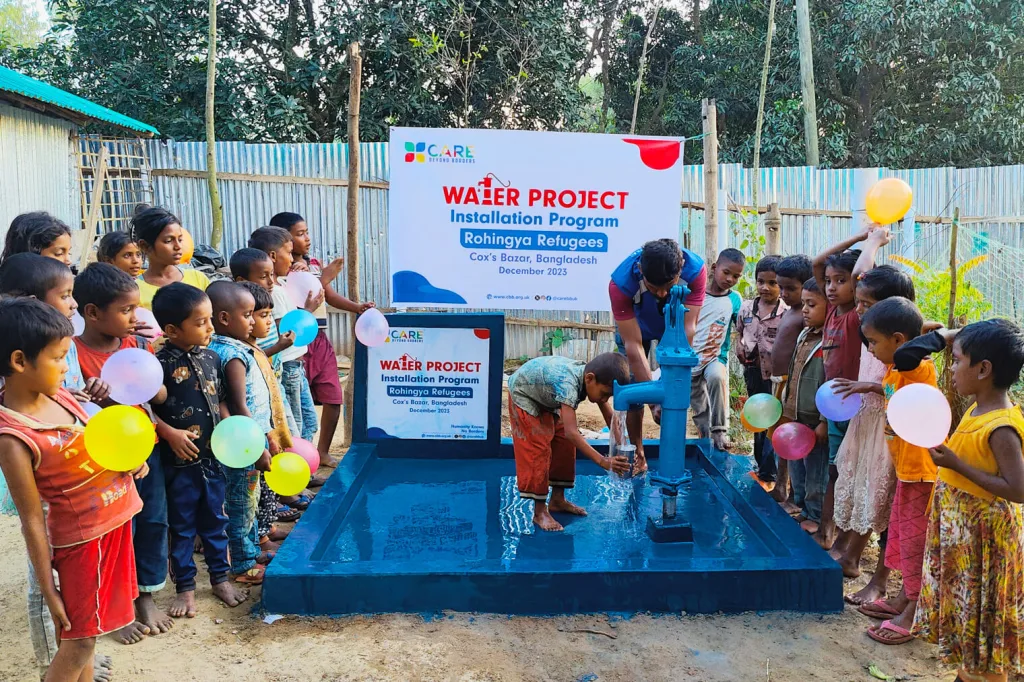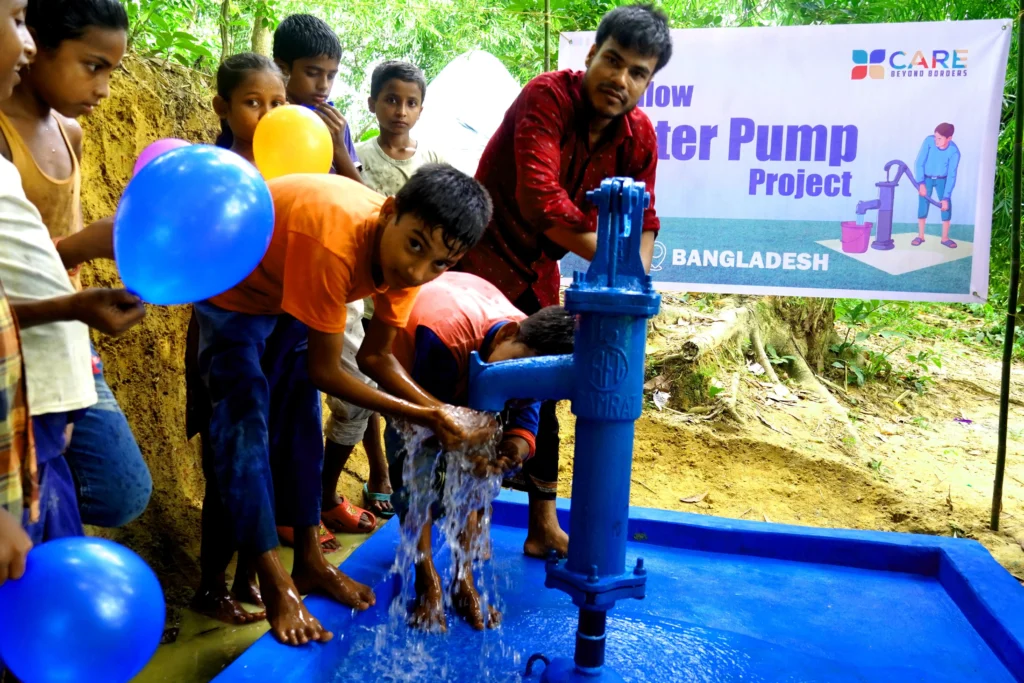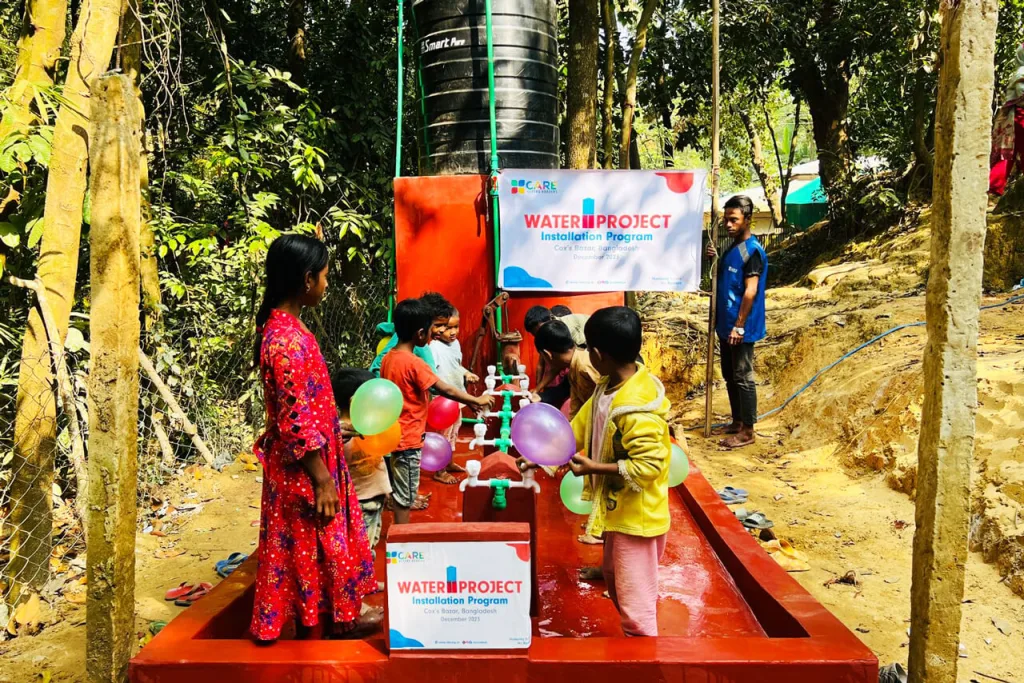Clean Water For Rohingya and Bangladeshi families
So many people are suffering from the water crisis in Bangladesh’s remote areas and in the refugee camps in it's southern district of Cox's Bazar.
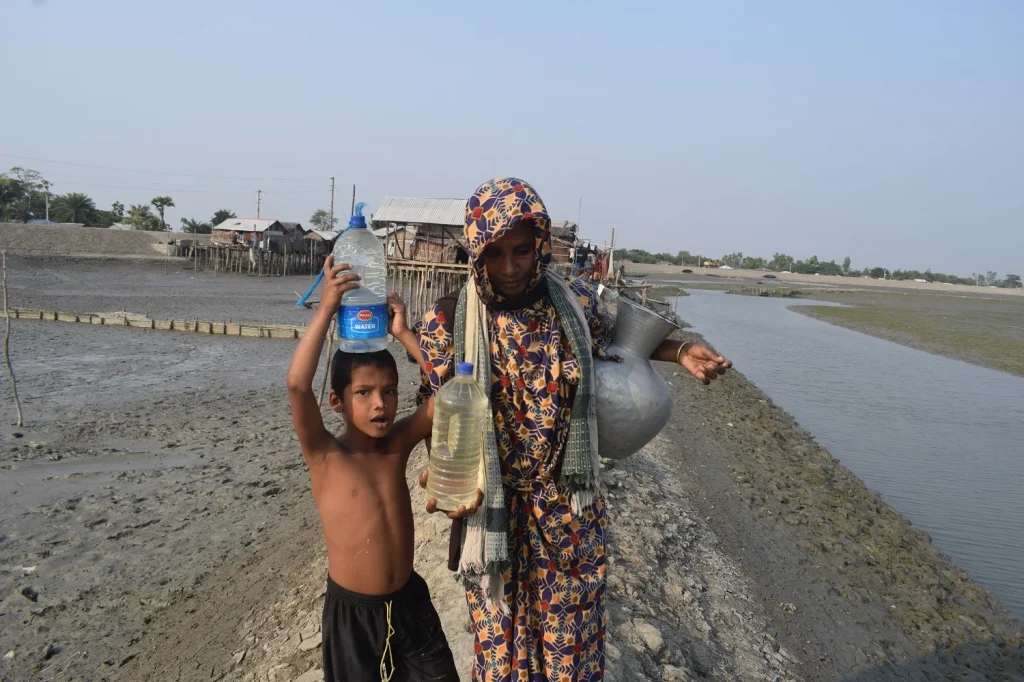
Bangladesh, a South Asian country bordered by India, Myanmar and the Bay of Bengal, is one of the most impoverished and most densely populated countries in the world. Bangladesh currently has a population of 161 million in an area slightly smaller than the U.S. state of Iowa. In Bangladesh, many people suffer from diseases and even lose their lives due to using contaminated water. Polluted sources like ponds and small creeks are drinking water sources for those people. Women and children suffer the most. For this reason, they suffer from waterborne diseases like diarrhea, giardiasis, dysentery, typhoid, etc. Water supply is a significant issue for low-income families in the dry season. On the other hand, although large areas of Bangladesh are flooded during the monsoon season, the pure water shortage becomes acute.
Bangladesh is hosting more than 1.2 million Rohingya refugees in it’s southern district of Cox’s Bazar. Their sufferings are unimaginable. Clean water is a distant dream for those deprived and persecuted people.
Prophet Muhammad ﷺ said: “The best charity is giving water to drink” and he was the most generous in giving charity. (as narrated in Ahmad).
Water Crisis in Bangladesh
According to a report of WHO, 97% of the people of Bangladesh have access to water and only 40% percent have proper sanitation. With a staggering 60% of the population that has to endure unsafe drinking water, the nation is in danger. The availability of this water greatly fluctuates throughout the year as the warmer season brings massive amounts of water in frequent monsoons and the cooler season brings drought.
So many people are suffering from the water crisis in Bangladesh’s remote areas. Polluted sources like ponds and small creeks are drinking water sources for those people. Women and children suffer the most. For this reason, they suffer from waterborne diseases like diarrhea, giardiasis, dysentery, typhoid, etc.
Water Insecurity in Rohingya Refugee Camps
More than 1.2 million Rohingya refugees live 33 makeshift camps in Cox’s Bazar area, in south-eastern Bangladesh. Water is scarce in those camps. It is challenging to secure adequate water sources for the whole refugee population – most of whom fled to Bangladesh in late 2017.
The camps are overcrowded, with an average population density of less than 15m2/person, well below the international guideline of 30-45m2/person for refugee camps. There are problems with the quality and uneven distribution of water, with many people walking long distances to water sources. Cholera, typhoid, and diarrhea, particularly Acute Watery Diarrhea (AWD), is very common among the refugees.
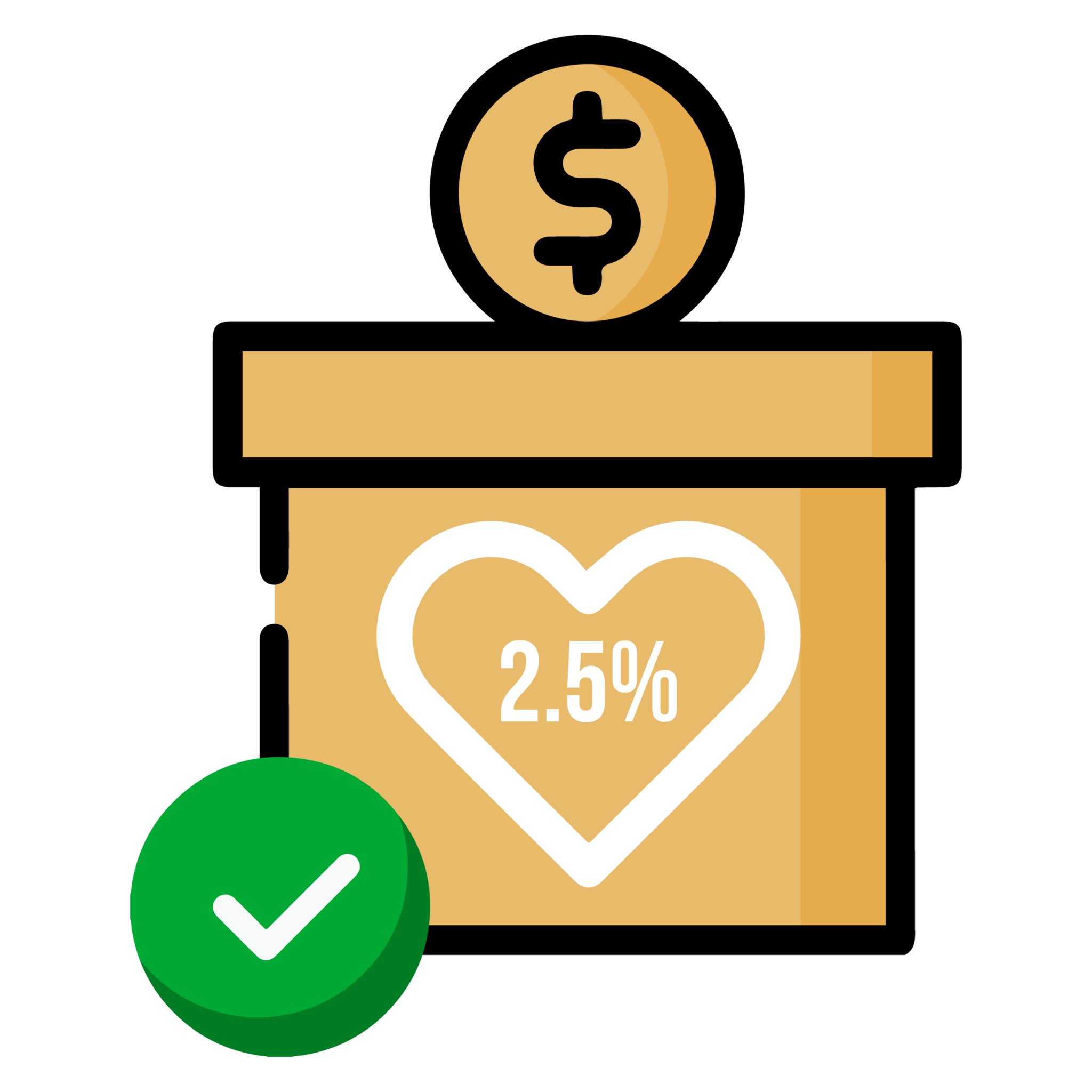
Zakat-Eligible
Your donation towards this cause is verified 100% Zakat-Eligible

Secure Giving
Your sensitive financial information never touches our servers. We send all data directly to Stripe/Paypal's PCI-compliant servers through SSL.

Registered Charity
CARE BEYOND BORDERS is a registered non-profit organization in the UK. Reg No. 14942847
DONATE A WATER WELL
FAQ
Our hearts ache for all those in need around the world. However, the acute challenges faced by families in Bangladesh and Palestine are immense. These regions have seen prolonged hardships, and the immediate necessity for sustenance is evident. Our aim is to alleviate their sufferings and bring hope.
Every penny of your donation goes toward the Rohingya and Palestinian families who are facing immense hardships. Your generosity ensures a better life for those deprived communities.
Our commitment is to direct the maximum portion of your donation to the cause. A minimal percentage covers essential administrative tasks, ensuring our operations run seamlessly. But rest assured, the heart of your contribution directly touches lives.
Transparency is a cornerstone of Care Beyond Borders. We regularly update our donors with reports, photos, and stories from the ground, showcasing the tangible impact of their generosity.
Your support isn’t just measured in monetary terms. Spreading the word, sharing our cause with friends and family, and keeping the affected families in your thoughts and prayers are equally invaluable.
Copyright 2024 © | All Rights Reserved | Care Beyond Borders | Privacy Policy
